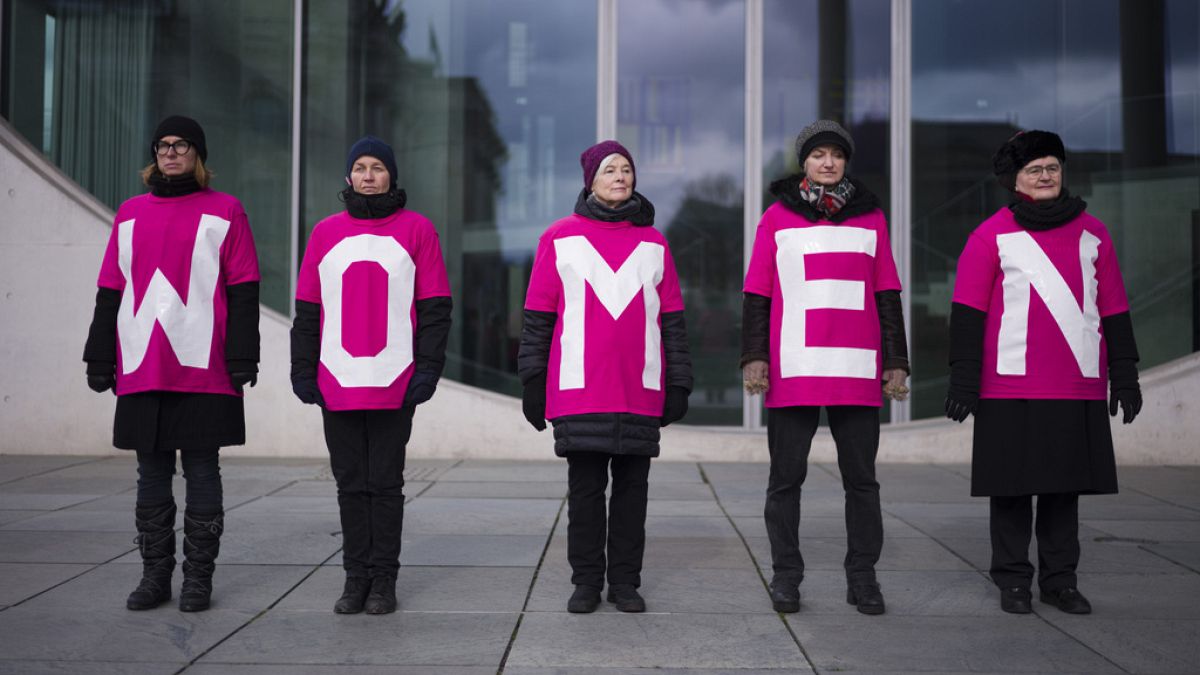Only 43% of women have asked for a pay rise during their careers, despite most feeling unsatisfied with their salaries.
The gender pay gap is a significant stumbling block on the road towards a fairer world.
Despite major advances towards equality, European women are still earning 13% less than men doing the same job.
Wage disparities have a number of underlying causes, but one such driver can be called 'the confidence gap'.
According to a recent study by employment site Indeed, only 43% of women globally have ever asked for a higher salary during their careers.
This is despite over half (56%) not believing that they are paid enough in their current positions.
"Sadly, women are typically less comfortable than men with asking for raises or fair compensation, and they often don’t know how to access the right tools to assess how much they should be paid," said Jessica Jensen, Chief Marketing Officer at Indeed.
"I am encouraged to see organisations and jurisdictions taking the lead in pay transparency, and this progress will be critical to ensuring women get paid what they are due and can advance professionally."
Women in India asking for more
Indeed collected responses from women across 11 countries and found that women in India were most likely to ask for more pay.
When having this discussion, women in India reported a high level of confidence (53%) compared to their international peers (global average of 30%).
At the other end of the scale, women in Japan were the least likely to ask for a higher salary.
Only 13% of women in Japan have demanded a better wage during their careers and only 16% say they would be comfortable doing so.
Barriers to conversations around pay
Respondents shared different reasons for not challenging the level of their pay packets, and one commonly cited barrier was a fear of negative repercussions.
When asked about the confidence gap, Karen Johnston, a Professor of Organisational Studies at the University of Portsmouth, explained that women can be viewed as "'other' in organisations", and "made to feel excluded because of discriminatory practices".
"It is as if they are guests in a house rather than part of the household and therefore do not feel comfortable to ask for an increase in salary," she said.
Of the women surveyed by Indeed who did ask for a raise, three in four women (76%) received a pay increase - although they may not have received everything they were asking for.
Results were most promising in India and Germany, where 85% and 83% of women were given a pay increase respectively.
How can we level the playing field?
72% of women surveyed by Indeed said that transparent promotion and compensation processes were a means to achieving pay parity, whilst 71% supported the introduction of legislation to even out salaries.
Jenny Garrett, businesswoman and career coach, also gives women advice on how they can push for fairer compensation themselves.
"If we do ask for a pay rise we need to go into the conversation with facts," she told Euronews Business.
"What are your company's gender and ethnicity pay gaps and what have they publicly committed to do about it? Find out what the going rate for other comparable jobs is and gather as much information as possible."
She added that employees should also be prepared to show that they have made a "real difference".
"Doing your job well is expected, you need to show that you have exceeded expectations and are already working at the next level."
Jennifer Tomlinson, Professor of Gender and Employment Relations at Leeds University, equally stressed that the timing of the pay request can help to ensure its success.
"Negotiating at the start of an employment contract is a good opportunity to set salary expectations in a new role and into the future. If greater responsibilities or a promotion are obtained, this is also an important point at which women should emphasise their value and worth and negotiate their salary."



